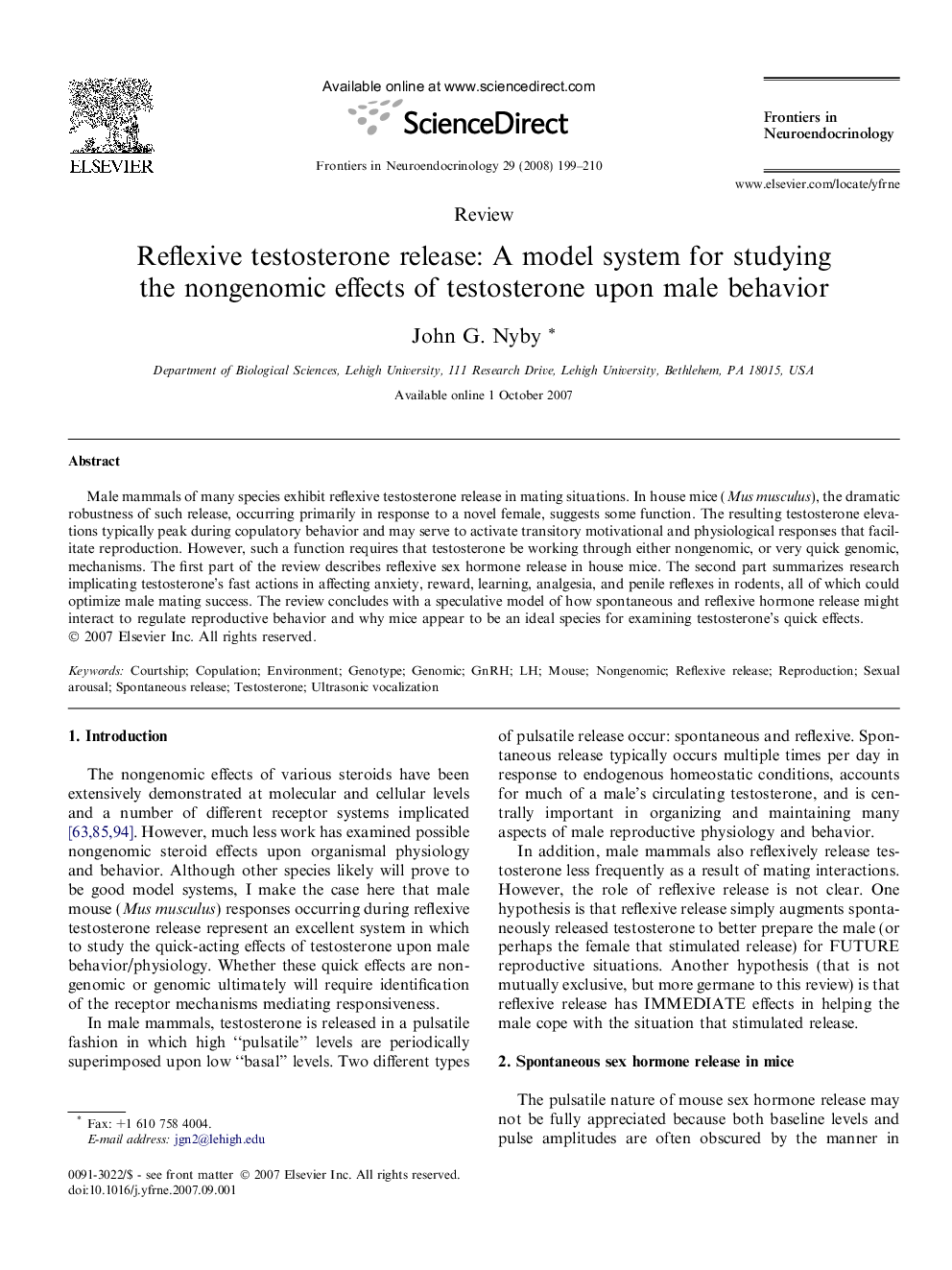| Article ID | Journal | Published Year | Pages | File Type |
|---|---|---|---|---|
| 2799589 | Frontiers in Neuroendocrinology | 2008 | 12 Pages |
Male mammals of many species exhibit reflexive testosterone release in mating situations. In house mice (Mus musculus), the dramatic robustness of such release, occurring primarily in response to a novel female, suggests some function. The resulting testosterone elevations typically peak during copulatory behavior and may serve to activate transitory motivational and physiological responses that facilitate reproduction. However, such a function requires that testosterone be working through either nongenomic, or very quick genomic, mechanisms. The first part of the review describes reflexive sex hormone release in house mice. The second part summarizes research implicating testosterone’s fast actions in affecting anxiety, reward, learning, analgesia, and penile reflexes in rodents, all of which could optimize male mating success. The review concludes with a speculative model of how spontaneous and reflexive hormone release might interact to regulate reproductive behavior and why mice appear to be an ideal species for examining testosterone’s quick effects.
